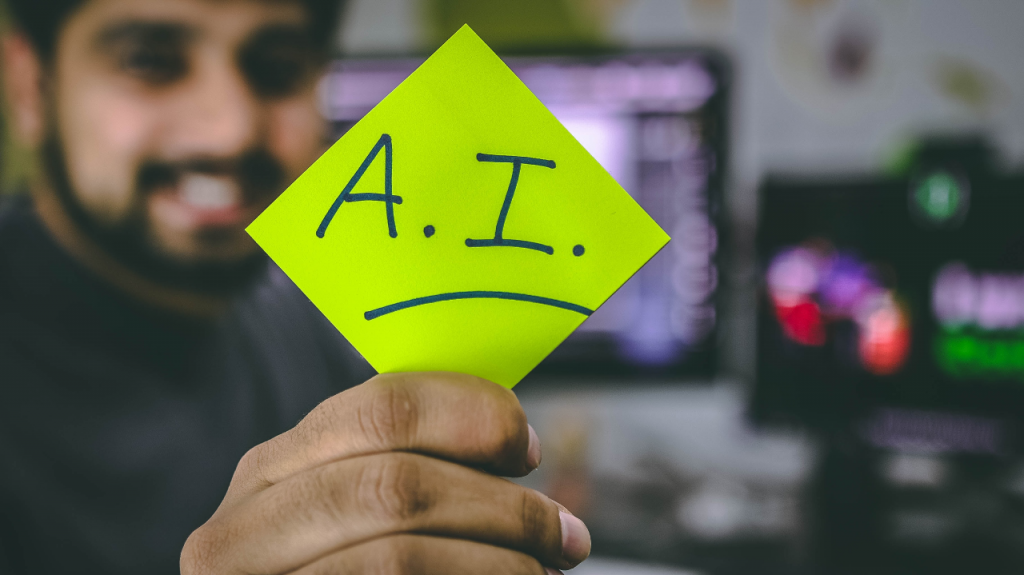AI technology is poised to significantly disrupt the industry of web scraping bots due to its ability to analyze vast information and recognize unique patterns.
Traditional web scraping bots continue to struggle with data recognition due to unique layouts across the internet. Many businesses limit web scraping campaigns to sites with identical layouts due to the difficulty of using web scraping bots for various websites.
However, AI technology promises to revolutionize the web scraping process by allowing developers to easily extract large amounts of data from all types of websites.
Businesses can easily handle heavy data syndication from a wide range of sources using AI web scraping technology. AI can also play a key role in boosting enterprise management productivity while also making a positive impact on other activities, such as market and labor research, supply chain analytics, and sentiment analysis.
Why AI is the Next Big Trend for Web Scraping
Now is one of the best times to use AI web scraping technology, as the cost of cloud computing continues to decline. AI is also becoming more common, making it easier for businesses to take advantage of this technology fully.
AI for web scraping was initially adopted by the major tech giants, such as Google, IBM, Microsoft, and Salesforce. However, AI technology is becoming more readily available for small businesses in need of web scraping services.
Over time, the use of AI web-based scraping technology can increase the efficiency of various departments, such as sales, IT, customer service, and HR.
Here are a few ways that AI technology can give your business a competitive edge.
Fast Track Data Collection
Attempting to scrape the web by analyzing hundreds or even thousands of websites is a time-consuming process. Using traditional web scraping bots for these activities is a challenge for most businesses. However, you can expedite the entire process by investing in AI technology to collect all of this data while also quickly identifying and classifying relevant sources of information.
Easily Collect Larger Volumes of Information
AI web scraping technology allows you to collect data faster, which maximizes efficiency and saves your company a lot of money. This information will result in more significant insights without requiring the extra time for using traditional web scraping bots.
Improve Accuracy
One of the best selling points of using AI web scraping services is identifying patterns with a higher accuracy level. Each business can process much larger batches of data while also minimizing mistakes. Ultimately, this results in much more value for your company while also giving you an edge over other businesses that have yet to invest in AI technology.
Here are three case studies that highlight the benefits of using AI-based web scraping in the workplace.
MIT Researchers Develop Self-Teaching AI Web Scraper
Massachusetts Institute of Technology (MIT) recently published a paper describing how they created an AI web scraping service that uses data from the web to make better decisions.
This powerful technology uses a dynamic approach to look for more information on the web without the need for preset mathematical rules or formulas. AI data extraction requires minimal instructional data due to the algorithm that searches for information to fill in the gaps.
These researchers also developed a “confidence score” feature, highlighting the level of certainty for each one of the program’s predictions. The program will also revert to research mode and look for additional information if the confidence score doesn’t reach a specific threshold.
Ultimately, these researchers believe that this innovative technology will significantly impact web scraping across multiple industries. The self-learning algorithm can expedite research efforts in numerous ways while also maximizing accuracy.
How Agricultural Markets Information System (AMIS) Uses AI Web Scraping Technology
AI web scraping technology is also being created to fine-tune data recognition proficiency to near-human levels. A post-extraction machine learning algorithm categorizes similar elements across a large number of websites.
The creators of this technology demonstrated the proficiency of these AI web scraping services by collecting the price of food from three different websites to help improve the Agricultural Markets Information System (AMIS).
Initially, the program sorted data from unique sources into separate categories while keeping the database up to date.
The machine easily sorted through these dynamic sites much quicker than human judgment while also maintaining higher levels of accuracy. The algorithm can deduce search terms for each query while also analyzing and categorizing all of the extracted data based on preset preferences.
Each stage of the entire process feeds into each other, whether human interfacing, data analysis, organization or data extraction. The user can also check the results’ accuracy at the end of each search iteration and provide feedback to tweak the search terms.
The algorithm also used these terms in data analysis and categorization to further enhance accuracy. Typically, the most accurate results happen in the second cycle, once users provide their first set of feedback. All of the results for each itinerary can also be saved for future reference. Ultimately, this makes it easy to improve the algorithm for new searches due to previous queries’ input.
AI Web Scraping Tool for Creating a Gas Price Database
Bo Tree Technologies is a web development company that created a dynamic database for keeping track of gas prices in real-time. The primary purpose of the database was to help customers find the cheapest gas in various cities. The data needed for these services include each gas station’s names and the corresponding zip code while also creating a category of prices for regular and premium gas.
The main problem with traditional web scraping bots is automating price updates due to the different layout of data sources. Extracting data from dynamic sources also requires converting this information into the correct format to ensure it’s uploaded quickly to the database. Finding a viable solution would expedite the entire process and boost the productivity levels of each employee.
Developers used Python-based machine learning and RPA technology for the web scraping process. One of the main advantages of using AI-based RPA technology is that it can interact with many applications and data through website UIs, database connectors, APIs, and many other solutions.
All of this data was extracted and used by machine learning technology and the RPA to create an API for real-time price updates on the database.
While RPA can automate interactions with data and various applications, it cannot process unstructured information or make complex decisions. The machine learning algorithm is used to organize all of the data.
Successive itineraries resulted in all of the technologies to complement each other during each stage of the process. For example, AI technology improved the search queries, which RPA technology used to find and extract information. The RPA also provided more relevant data to the AI technology to deduce the results based on user preference.
How AI-Based Web Scraping can Benefit Your Business
AI-based tools play a crucial role in improving data collection accuracy while also offering much faster turnaround times. These case studies provide plenty of examples of how AI technology will become more prevalent in the near future.
AI technology can help reduce costly human errors while also saving your employees a lot of time and effort. Now is the perfect time to leverage AI-based web scraping technology to give your company an edge and boost your bottom line.






